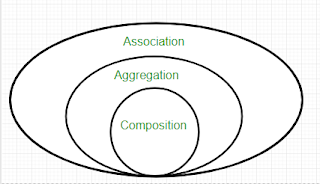What is Aggregation?
Aggregation is the consolidation of an individual’s financial data from multiple institutions to one singular institution. Account aggregation, as a finance management concept, is typically completed by an individual’s financial planner to create cohesion, clarity, and simplicity.
The aggregation will include creating a central view of a client’s banking accounts, credit accounts, investment accounts, business accounts, and all other forms of financial accounts. It will allow the financial planner and the client to view all accounts and products at the same time in an overall full-view financial picture.
Furthermore, the aggregation will provide the financial planner with a full view of their client’s assets and liabilities, which will, therefore, aid in their financial suggestions surrounding future decisions or whether their client requires any additional products or services to put them in a better position.
Account aggregation is usually completed using technological processes. Typically, financial institutions will institute some kind of computer program or application that will be able to pull the client’s account information. The use of electronic systems eliminates the need for any kind of paper statements when completing account aggregation.
Account Aggregation – History
The aggregation of financial accounts began in the mid-1990s when banks started instituting internet-based banking applications that would help clients manage their funds through online services. It was supposed to be an easy way of managing finances with just one click that would allow clients to get a full view of all their accounts.
Eventually, most financial institutions started introducing single sign-on (SSO), which allowed clients to see all their accounts with one click, while also allowing them to complete other tasks such as funds transfer and new account openings. More recently, as competition and technology are becoming more advanced, some banks are introducing account aggregation applications that include robo-advisors.
Some Client Issues with Account Aggregation
- Clients may be skeptical of the institution’s technology and security.
- They may worry about committing all their finances to one institution and allowing them to know all their assets and liabilities.
- They may not want to allow a financial planner from one institution to be responsible for all financial advice.
Why is Account Aggregation Important?
Aggregation of financial accounts is important for a multitude of reasons.
- It helps clients manage their finances more easily because it provides a full picture of all their assets and liabilities from their financial accounts.
- It allows a financial planner to easily break down the financial picture of their client, which will thus allow them to provide better recommendations and overall better service.
- It can add additional security and protection.
- If you keep a multitude of accounts, it will be a way to consolidate all of them so you can clearly see an overall picture of how your accounts are doing.
- It simplifies the understanding of your finances and accelerates processes surrounding financial information gathering.
- It can simplify and provide convenience when completing transactions, such as bill payments.
Account Aggregation – Example
As a client, you keep a multitude of financial accounts in different financial institutions – credit cards, savings accounts, checking accounts, investment accounts such as TFSA and RRSP, lines of credit, a mortgage, and a car loan.
Maintaining different accounts becomes extremely hard for you to manage and understand your financial situation because you are unable to see the full picture. After meeting with a financial planner, you decide to undergo account aggregation at your primary financial institution.
From there, your financial planner will use the appropriate applications or programs to retrieve your financial accounts and information. It will allow the financial planner to see all your different financial accounts, which will aid in their task to provide appropriate advice and suggestions surrounding new products or services that would be best suited for you.
Overall, account aggregation gives you and your financial planner a more simplified and convenient view of all your accounts.








0 Comments